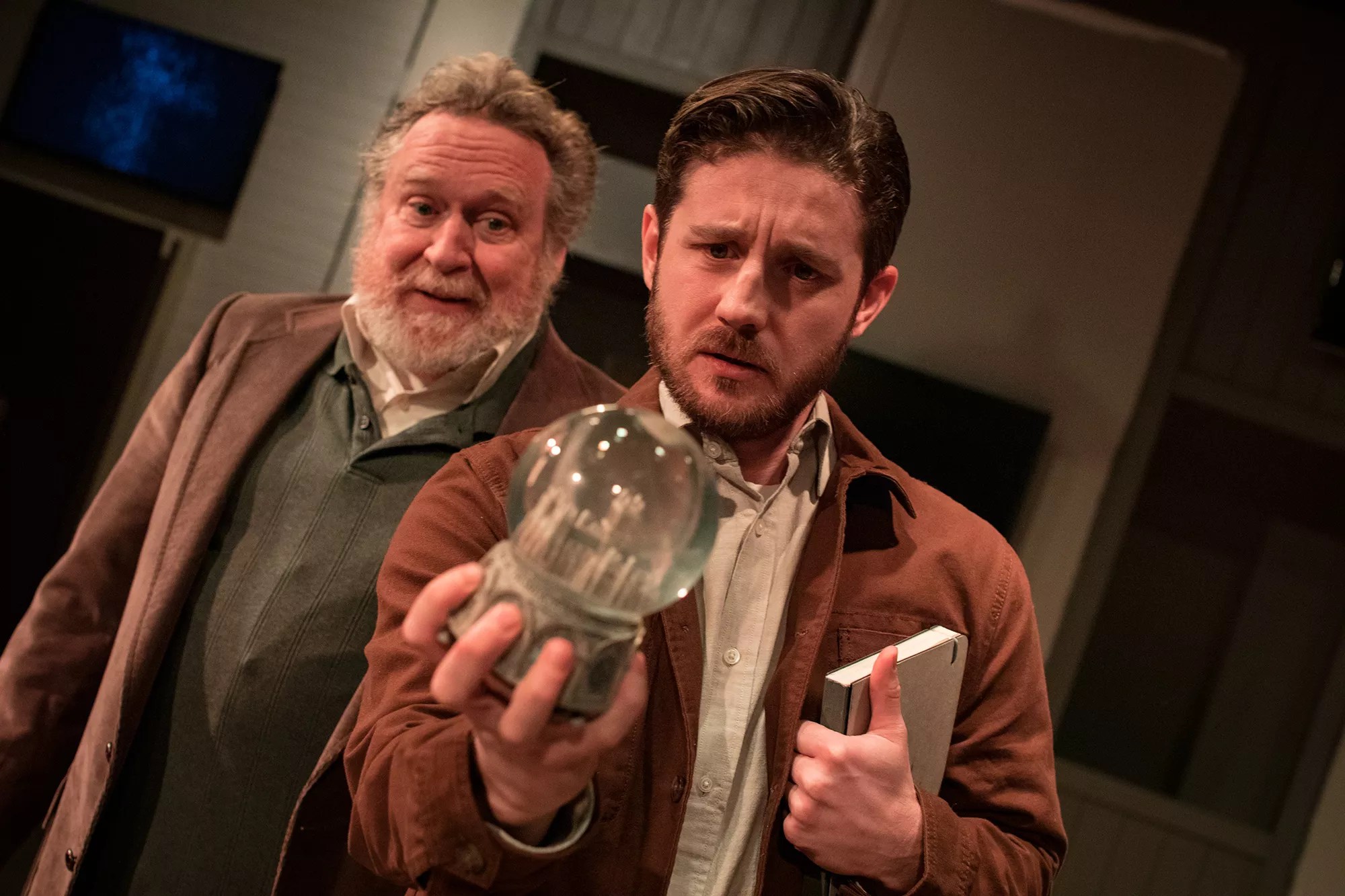
Benchmark Theatre

Audio By Carbonatix
George Orwell’s 1984 has never lost its salience. It is still taught in high schools because of the uncanny clarity with which Orwell communicates the reality of totalitarian rule: “If you want a picture of the future,” says torturer O’Brien to his victim, “imagine a boot stamping on a human face – forever.”
This is terrifying book – and terrifying in a very different way from the new play, 1984, written by Robert Icke, an acclaimed English director, and Duncan Macmillan (whose fine work Lungs was recently given a stunning production at Miners Alley), and now in a regional premiere at Benchmark Theatre. Orwell used a straightforward narrative. His protagonist, Winston Smith, is a bureaucrat whose job is revising history, slipping statements and photographs the regime finds inconvenient down a memory hole and into oblivion. This is a world where the past – along with literature, music, art, pleasure – doesn’t exist, and reality shifts constantly. Benchmark’s production is brave and timely: Remember Trump counselor Kellyanne Conway defining administration lies as simply “alternative facts”? Remember the president’s attacks on the press and endless complaints about “fake news”?
Orwell’s Winston is a mild man, but his deepest instincts are rebellious, and eventually he finds allies – in particular Julia, whom he at first suspects of being an informer but eventually recognizes as a fellow rebel. The two fall in love. Their secret affair takes place in a room behind an antique shop owned by another apparent dissident, the kindly and erudite Charrington. In the world of Big Brother, sex without the intention of procreation is forbidden, and Winston and Julia’s love for each other represents a joyous freedom. These characters are well drawn, and Orwell’s trenchant political insights are revealed through story and acted and spoken by vividly drawn human beings. We see Winston’s humanity, his bravery and his cowardice; we also empathize with his feelings for defiant, sexy Julia.
But time and sequence are upended in Icke and Macmillan’s play, and no one is very human, although most of the acting is fine, particularly Sean Scrutchins as Winston, Chris Kendall as Charrington and Dan O’Neill as O’Brien. The story is disjointed and told with an emphasis on technology: strobe lights, ever-changing projected slogans – “War Is Peace,” “Freedom Is Slavery,” “Ignorance Is Power,” “Big Brother Is Watching You” – as well as ugly, dissonant and unexpected sounds. You watch in a haze of discomfort that, in some ways, works perfectly to communicate the atmosphere of the joyless, gray world you’ve entered – perhaps better than a smoother narrative could. The production jolts you out of your everyday reality and slams your brain against your skull.
I read the book in my teens, and have vivid memories of a particular scene: Winston sees a fellow prisoner, a fat, chinless, wavering soul, reach into his pocket to offer a crust of bread to another man, who is clearly starving to death. Instantly, guards burst in and beat the giver bloody. Afterward, as he struggles, whimpering, to his hands and knees, “Amid a stream of blood and saliva, two halves of a dental plate fell out of his mouth.” In the play, telling pieces of realism like this are replaced with sledgehammer blows.
We see Winston and Julia together in their secret room on video screens of various sizes, and the distancing is deliberate. There’s no warmth or sensuality to these scenes, just voices and the image of two figures. And though the long, ugly torture scene stuns and distresses, I couldn’t help wondering if this was Icke’s way of pandering to the young audiences he seeks, trained by video games and bloody movies to enjoy the crack and terror of torture and killing.
Orwell wrote 1984 in 1947. He had fought against fascism in the Spanish Civil War, where he also discovered the dangers of Communism. He knew the horrors of World War II – which had ended only two years earlier -and had a deep hatred of fascism. Now, all these years later, can his novel still communicate the depth of his understanding and analysis, the importance of his warning? Or do contemporary audiences need to be disoriented and shocked into understanding?
Perhaps they do. But it does seem ironic that words have lost the power to bring a story that has language at its very core to life.
1984, presented by Benchmark Theatre through April 13, 1560 Teller Street, Lakewood, benchmarktheatre.com.